Headaches are extremely common. According to the World Health Organization, 1 in 20 adults has headaches nearly every day. The most common headache disorder is the tension-type headache, which affects more than a third of men and over half of women in the world.
Tension headaches can be excruciating, and for those who frequently suffer from them, can also be debilitating. Tension headaches exhibit a correlation between depression and anxiety. Headaches are more than just a health issue; they have a considerable impact on your physical, emotional, social, and economic well-being.
Fortunately, there are a few simple ways to relieve the pain. For those who experience chronic tension headaches, remedies and treatments are available so it occurs less frequently and at a reduced intensity.
What Is Tension Headache?

A tension headache is generally described as a diffused, mild to moderate pain that affects the whole head. The pain can begin from the back of the head and above the eyebrows. It can last for about 30 minutes to a few days.
The pain of tension headaches tends to come and go, depending on the severity. It feels like a cap or band-like sensation encircling the skull, while some mention pain and muscle tension in their neck and shoulders.
Tension headaches can be categorized into 2:
- Episodic Tension Headache – Episodic tension headaches are often a result of stress and may last for 30 minutes up to a week. Typically, they pass quickly and are resolved as soon as the stressful event is through or after taking an over-the-counter medication.
- Chronic Tension Headache – Chronic tension headaches can occur daily. If you experience headaches for more than 15 days in a month for over 3 months, then it is considered chronic.
Causes and Symptoms of Tension Headaches
Experts don’t know for sure what causes tension headaches. They used to think that muscle tension and spasms on your neck, face, and head are to blame. However, recent studies suggest that brain chemicals may also be the culprit. What doctors agree on is that tension headaches are usually a result of bad habits and certain activities. Repetitive activities, work pressure, relationship stress, and poor posture are all triggers of tension headaches.

Activities that contribute to tension headache include:
- Working on your computer for prolonged periods
- Looking down on your mobile phone constantly
- Driving for so long without taking a rest
- Playing video games for long hours
- Jaw clenching during the day or at night
- Sleeping on your stomach
These activities tend to overstretch your back and neck muscles and, as a result, weaken them. Also, overusing muscle can cause pain and spasms, increasing your chance of contracting tension headaches.
If you feel you have been stressed for the past few days and are beginning to feel pressure on your head, look out for the following tension headache symptoms:
- Constant pain (not throbbing) on your temples or on the backside of your head and neck
- Tightness or pressure on your forehead
- Tenderness on your scalp, neck, and shoulder muscles
- Sensitivity to light and sound
Tension headaches are not generally associated with nausea and vomiting, vision problems, like flashing lights and blind spots, and numbness or weakness of the arms and legs. These symptoms may be a sign of another type of headache or an underlying medical condition.
Tips for Tension Headache Relief
The good news is that you don’t necessarily have to rely on medications to relieve yourself from tension headaches. Taming headaches can be as simple as making sure that you have a balanced diet, healthy habits, and appropriate treatments.
Here are some simple ways you can do to relieve tension headache:
- Minimize Stress
As the name suggests, the headache often happens when the muscles in your neck and scalp tense up. Sometimes, the tension can result from an injury. At times, it may simply be because of stress. Stress triggers can vary from one person to another. Some can get stressed because of work, a rocky marriage, or the death of a loved one. While it’s impossible to avoid stress, effective management can help prevent headaches.
Fortunately, there are a few ways to lessen the burden of day-to-day living:
- Seeking support
- Adjusting your attitude
- Managing your time wisely
- Organizing your day
- Letting go of things you cannot control
- Breaking away from your routine
- Deep breathing exercises
- Meditation
- Taking a walk in nature
- Take a Break

Taking a vacation and getaway can also help you relax and develop a new outlook. Step back from your computer and surround yourself with nature. Even 20 minutes of contact with nature can significantly lower your stress hormone levels. If you don’t have time for a trek or to go camping, hanging out in a garden or a park works, too. Just make sure you don’t bring your gadgets with you.
- Have a Good Night’s Sleep
Not having enough sleep can contribute to your stress levels. It’s not uncommon to experience lightheadedness or a throbbing headache when you are exhausted. In fact, according to the Journal of Clinical Sleep Medicine, 59% of those who suffered tension headaches said that sleep deprivation triggers headaches.
The next time you feel some pressure building up on your temples, take some time to get a quick shuteye. A 20-minute nap is enough to help you feel refreshed. Also, try to sleep on your back or side with a body pillow and your neck in a neutral position.
- Correct Your Posture
Sitting at work and in front of your computer all day don’t only stress you out but also takes a toll on your posture. Prolonged sitting can cause an imbalance and tension in your neck and back. Slumping and hunching can trigger headaches more than you think.
Make an effort to adjust your posture regularly. Experts recommend you sit up straight, tuck in your abdomen, keep your thighs parallel to the ground, and look forward instead of down.
- Exercise and Stretch

Getting active and taking time to stretch can go a long way in relieving your headache. You might choose to curl up when your head hurts, but exercising regularly can pay off. Even 20 to 30 minutes of exercise a day gets the blood flowing and improves your cardiovascular and cognitive function.
Sneak in some light exercise, like jogging, biking, or swimming, before or after work. You might also want to consider gentle stretches like yoga and Tai Chi to relax.
- Drink Water
Dehydration can also be the reason why you’re feeling a pounding in your head. Drinking more water can help with head pain. Especially if you’re working out and sweating, you should double your water intake.
Likewise, you also have to watch your caffeine consumption. Caffeine is a diuretic. For every cup of coffee, drink as many glasses of water or more to keep yourself from dehydration.
- Consider Chiropractic Treatment for Tension Headaches

Chiropractic treatment is another viable solution for tension headaches. It focuses on addressing musculoskeletal issues like muscle tightness and spinal misalignment. It can alleviate the tension and pressure from your back and neck that may be causing your headaches. More than that, the main objective of this treatment is to restore and optimize your overall health.
Chiropractors can also provide you with guidance on nutrition, posture, relaxation, and exercise.
If you want to seek chiropractic treatment to ease tension headaches, visit Fairway Chiropractic Centre. With more than 25 years of service, we take pride in offering quality care and relief for various common conditions. Book an appointment now or call us at (519) 748-5535.











